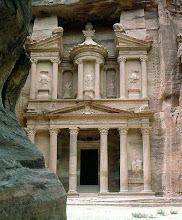I have always been fascinated by the notion and development of Canadian national identity. For me it always starts and ends with the question "What is a Canadian'. More specifically, what other traits other than our geographic proximity makes us Canadian? For many countries around the world, an apparent ethnic association is usually sufficient to answer that question. Culture plays the biggest part in my opinion but this usually takes centuries to develop into a distinct national culture. So how then can Canadians answer this question?
While reading the first chapter in C.J Taylor's Negotiating the Past:The Making of Canada's National Historic Parks I came across a term that I have long thought best describes how Canadians identify themselves: Defensive Nationalism. Taylor was using the term to refer to the Loyalist Tradition in Canadian History as a reactionary understanding of culture.1 I think that this term is extremely applicable to how most Canadians view themselves in terms of a National Culture. Because we live in such a diverse country where ethnic, religious, social and even cultural enclaves are celebrated it is hard for Canadians to assert a culture that is our own and common to all Canadians. We seem to define ourselves by what we are not, in a particular regard to our gigantic neighbour to the south.
Most Canadians react violently to idea that we are a 'northern State of the Union' saying we are not like them because of all these reasons... which I will not begin to address. It is much easier for us to define ourselves in this way as a national culture. Yet, we are really not that different from Americans at all, a point which many Canadians would loathe to admit or accept for that matter. Reading about the loyalist tradition made me realize that Canadians have always engaged in this type of cultural construction since confederation. Perhaps it is our proximity to Britain and America near the turn of the 20th century that had us negotiating a middle position between them from the onset. A loyalist might answer the question of national culture like this: "We are like the British in this sense, yet unlike them because of this and don't even get me started on the Americans, we are nothing like them!" Add in the French heritage which is so rich and has cultivated a great deal of its own culture that it can stand outside of Canada altogether. This is evidenced by the Federal Governments acceptance of Quebec as a 'nation' in itself. If we add aboriginals (which we certainly should) to the mix, again our history confounds the creation of a national culture simply because of the multitudes of cultures operating in Canada throughout its existence.
I guess to sum up my ideas to a national culture is that I am no clearer about its source than when I started writing this blog. I was hoping to come to some conclusion about why we can't seem to define a national culture. Perhaps it's because we simply do not have one, but I for one reject this idea. A nation must certainly have its own culture that is reflected in its institutions, art, beliefs and values. I think that Canadians just cannot pin it down because of our rich heritage of multiculturalism in terms of historical nation building through colonialism all the way to our concerted effort to live in a multicultural society today. Canadians have always had a very difficult time expressing who we are as a national culture without excluding other members of Canadian society (Loyalist can define themselves but at the expense of the other groups in Canada). However, from reading Taylor it seems that historically speaking we have always defined ourselves by happily pointing out what we are not!
Endnotes
1. C.J. Taylor, Negotiating the Past:The Making of Canada's National Historic Parks(Montreal: McGill-Queen's University Press, 1990), 4-5.

Somehow I have always seen this humming and hawing tendency to be distinctively Canadian; our reluctance to turn our founding fathers into larger-than-life myths, to try and pin ourselves down for fear we will leave someone out, to hero-worship anyone in case people aren't aware that we know that they aren't perfect. Even to see ourselves as a mix of British and American, but knowing that that does not quite cover it, though we are not sure what would. That is rather Canadian. 'Course, I am remembering one beer commercial - 'I am Canadian' - that I rather liked, which gave a few of us anyway that sense of nationalism we don't usually like to indulge in.
ReplyDeleteYou are more than correct! One thing that I find fascinating about Canadian history is that we don't engage in myth-making, especially regarding our 'founding fathers'. I encountered a book written in the the late 19th century by a Canadian who was trying to do just that, make our national foundation into a myth by romanticizing the voyage of Cartier, the colonial activities of Champlain and the activity of early missionaries. We certainly do have this kind of heroic beginning which would be celebrated by any other country on earth, yet we Canadians simply do not have any connection to it. Visit America and they will gladly showcase their founding myths and create a reservoir of national pride around them. Perhaps it is our distinct English/French dichotomy that has signaled where each group can receive its source of national pride from. However it is elucidating to find out that the 19th century book meant to romanticize and create a myth regarding the French colonists of New France was written by an English Canadian! So now I'm lost again in my attempt to understand our national identity.
ReplyDelete